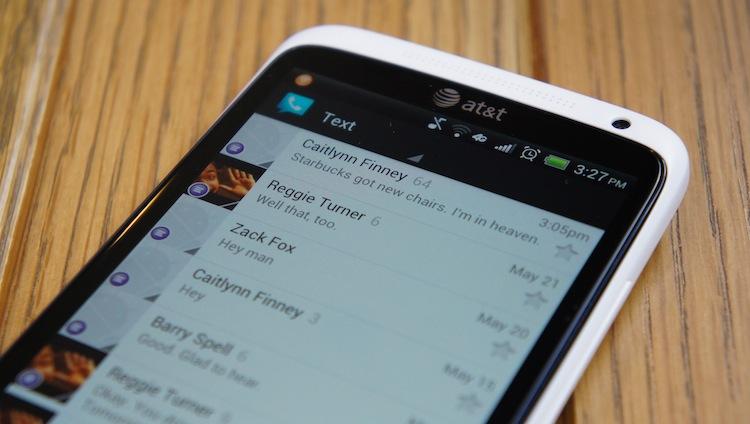
If I need to get in touch with someone, my sure shot way is usually SMS. I could always just call them. But most of you already know where I stand on calling – it's often inconvenient for both parties and can spiral from a quick, planned call to a long, drawn-out volley of stories that makes it nearly impossible to get off the phone.
Text messaging, on the other hand, is universal, reliable and recipients can respond when it's convenient for them. So I often stick to SMS, and I use third-party services when possible.
That said, I have one major bone to pick with carriers and SMS: pricing.
I've explained it before. Text messaging is grossly overpriced. You may think $10 to $20 per month (or $30 per month for unlimited messaging for the family) isn't all that expensive. But if you do the math, it's not hard to see how inflated SMS pricing truly is.
For contrast, at roughly 1KB per message, if you were to send and receive a total of 1000 messages using an instant messaging or IP messaging service, such as Google Talk or Google Voice, you might use somewhere around 1MB, give or take. AT&T's 3GB data plan costs $30 per month, which coincides with the average tiered data price of about $10 per gigabyte. Those 1,000 messages, or roughly 1MB of data would cost a grand total of approximately $0.01.
Cheap, eh?
Many carriers are moving away from tiered messaging plans, meaning the majority of the offers are all or nothing, unlimited or pay per use. With unlimited, like previously mentioned, plans generally start at $10 to $20 per month per user, or $30 per month for an entire family. That's a far cry from the exact same amount of usage if you were to simply use your data plan for messaging. But if you choose to pay per text message, the price is astronomical. Generally, text messages cost $0.25 per message, meaning the same 1,000 messages would cost a whopping $250.
Over the course of a year, the differences in price are quite significant. If you send and receive a total of, say, 2,000 messages per month, it would cost you roughly $0.24 if you were using a data-driven messaging service, $240 if you were paying for individual unlimited messaging at $20 per month, $360 for a family of messengers or $6,000 if you paid per message
However, third-party instant messengers and SMS services are beginning to fix the imbalance. According to Chetan Sharma Consulting, the U.S. market has experienced a decline in both SMS traffic and revenues. Says Chetan Sharma:
"In Q3 2012, for the first time, there was a decline in both the total number of messages as well as the total messaging revenue in the market. It might be early to say if the decline has begun or the market segment will sputter along before the decline takes place. As we had outlined in our fourth wave paper, once the market segment reaches the 70-90% penetration mark, the decline begins and we might be seeing the start of the decline in messaging revenue. The decline is primarily due to the rise in IP messaging and operators have been slow to evolve their strategies in the segment."
Unfortunately, this isn't only good news. There's an ominous cloud lingering above, too. Carriers still pull a considerable amount of their revenue from messaging, meaning if and when the messaging decline begins, carriers will be forced to restructure their offerings. In other words, what is lost in messaging revenue will likely be lumped in with larger, more expensive data plan options.
It really hinges on how carriers approach that restructure whether this will be a win or loss for consumers.
On one hand, carriers could offer a small amount of additional data (1-3GB) for the price consumers would have paid for messaging. In that scenario, both consumers and the carrier wins, considering how few customers would actually use the additional data. (The average data user still uses less than 1GB of data per month.)
The flip side is that data packages could stay in the same tiers and go up in price, playing the clever marketing bit and saying messaging and data are now one in the same. (We've already seen something to this effect, where AT&T includes unlimited SMS with its higher tier calling plans.) Or everything could be charged as data – data-only, as described by AT&T's Randall Stephenson in June.
Basically, carriers are going to have to make up for the loss in revenue one way or another. They can do that by selling us more of what we want for the same price that we're paying now, or they can continue this shared data bid and convince customers they're getting a good deal by paying more for less of what they need.
Either way, I've been going without carrier SMS since May without a hitch. Google Voice is my lifeline. And for everything else, Facebook Messenger, iMessage, Google Talk and Twitter fill the holes.
Do you still pay for carrier messaging? Or have you found a third-party alternative that suits all your needs? If do, what do you use? Google Voice? Facebook? WhatsApp? Share below!